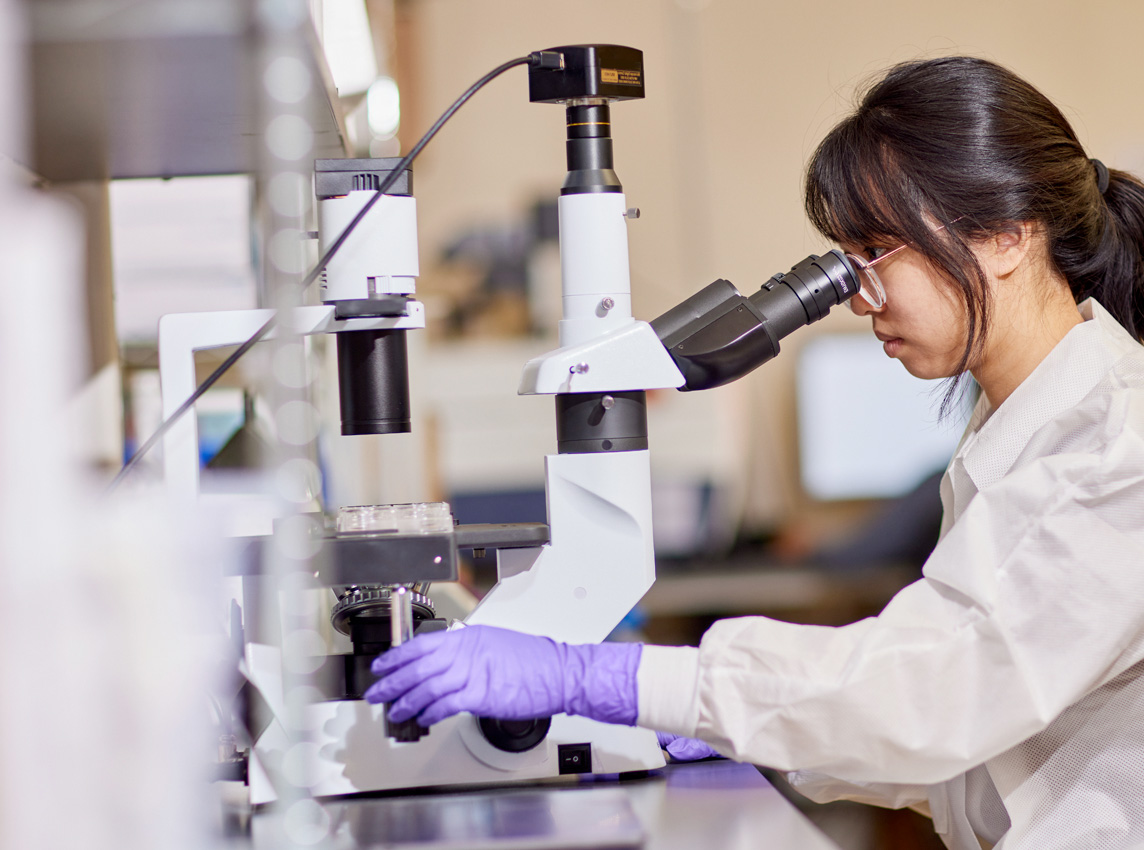
BIOSCIENCES
Next-generation drugs, diagnostics, and technologies to solve urgent medical needs
We develop transformative approaches and platforms for challenging therapeutic problems. We conduct basic and translational research, have the breadth — and depth — to deliver the latest in biomedical research through technology development. Our researchers have a rich legacy of collaboration with government agencies and industry partners that improve health outcomes and well-being around the world. Our projects range from high-impact, early-stage research to drug co-development with pharmaceutical and biotech companies. Contact us to learn more.
200+Research and technical staff(40% PhDs)
200+Biomedical products moved to clinical trials
11Partnerships with National Institutes of Health Divisions
“Because we’re a nonprofit with a mission to make the world a better place, there’s a lot of flexibility in the types of projects we can pursue. We can do earlier stage research that may have higher impact without as much emphasis on the bottom line. And when we collaborate with pharmaceutical companies, it’s truly a co-development process — sharing expertise and innovating together.”
Kathlynn Brown, PhDPresident – Biosciences Division
New ways of thinking about human health
Uncommon in the world of tech development, SRI Biosciences brings together basic bioscience, applied research for early-stage IP generation, and translational development — moving the lab to the real world.
Real-world impact
Recent publications
-
Evaluation of dimethandrolone undecanoate in non-human primates as a candidate for long-acting injectable male contraceptive
The objective is to assess the safety, pharmacokinetics (PK), and long-acting contraceptive potential of Dimethandrolone undecanoate when delivered as an injectable or oral formulation.
-
Associations between mesolimbic connectivity, and alcohol use from adolescence to adulthood
We examined the associations between alcohol use and ventral tegmental area resting-state functional connectivity to subcortical structures in 796 participants across 9 waves of longitudinal data from the National Consortium on Alcohol and Neurodevelopment in Adolescence.
-
The Need to Enrich Population Diversity in Radiogenomic Research
In radiogenomics, where the aim is to identify germline (as opposed to somatic) genetic markers predictive of response to radiation therapy, most studies accrued subjects primarily of European ancestry.



